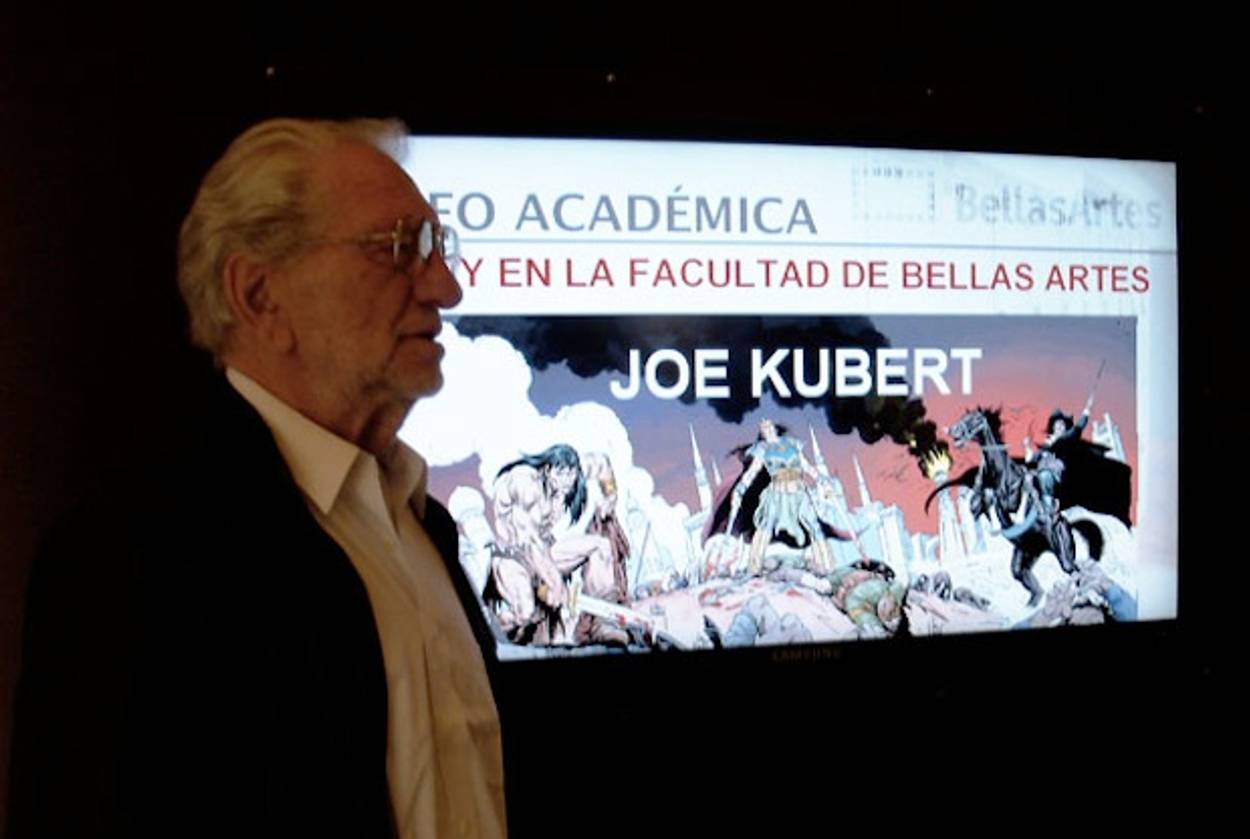Joe Kubert (1926-2012)
The legendary comic-book artist dies at 85




Some facts about Joe Kubert: He was born in a shtetl in Poland before he moved to Brooklyn with his family. Despite his doubts, Kubert’s father, who was a kosher butcher in East New York, spent $10 (or about $150 during the Great Depression) on a drawing table for his son. The rest is history:
“He’s the longest-lived continuously important contributor to the field,” Paul Levitz, a former president of DC Comics, said in an interview on Monday. “There are two or three of the greats left, but he’s definitely one of the last.”
Mr. Kubert (pronounced QUE-bert) was most closely associated with DC, for whom he drew Sgt. Rock, a World War II infantryman he created with the writer Robert Kanigher, and Hawkman, an airborne crime fighter. He also created Tor, a prehistoric hero, and, with Mr. Kanigher, Enemy Ace, whose antihero is a German pilot. In addition, Mr. Kubert was considered one of the definitive interpreters of Tarzan.
To help draw (wakka wakka) a fuller understanding of Kubert’s work (he even did some work for Chabad), I chirped at my friend Eli Valley, who interrupted his South African safari to give this tribute. Eli Valley, by the way, is the Artist in Residence at the Forward:
Joe Kubert was a member of my father’s synagogue. I remember on Rosh Hashanah as a little kid, I sat on his lap and was mystified by this magical man I was told made a living by “drawing comics.” I ran home and looked at his comics and didn’t understand the fuss — his fiery lines were too wild for an 11 year old accustomed to simplistic outlines, and I didn’t know what to make of it. It was only decades later that my mind was blown. His lines, and his understanding of anatomy — human, ape, everything — was so mind-bogglingly carefree and expressionistic that I’d spend days studying a single panel and marveling at how he could capture human movement so amazingly on paper. He understood humanity — the human form and the gnarly roots of the human spirit — so innately and profoundly that it still dumbfounds me to this day. He is the greatest.
Adam Chandler was previously a staff writer at Tablet. His work has appeared in the New York Times, the Wall Street Journal, the Atlantic, Slate, Esquire, New York, and elsewhere. He tweets @allmychandler.